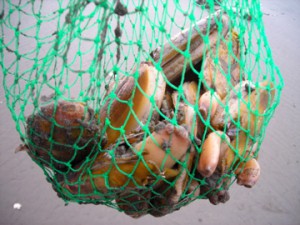The National Centers for Coastal Ocean Science (NCCOS) is providing $88,000 in emergency funds to aid Washington State to respond to an unprecedented West Coast harmful algal bloom (HAB) event.The funding supports collection and analysis of samples for the toxic algal bloom species Pseudo-nitzschia and domoic acid—the neurotoxin it produces-from beaches and offshore of Washington State.

These data, together with analysis of the oceanographic and meteorological conditions, will help identify factors contributing to the HAB outbreak and its severity, and predict whether the algal bloom will continue throughout the remainder of the year or recur in future years. The information is critical for warning the public during the upcoming popular razor clam harvesting season between late August and October.
Project partners include the NOAA Northwest Fisheries Science Center, the University of Washington, including the Olympic Region HAB Partnership, Washington State Department of Health, Washington State Department of Fish and Wildlife, Quileute Tribe, Quinault Indian Nation, and Makah Tribe, NOAA Olympic Coast National Marine Sanctuary, and the Pacific Northwest Regional Ocean Observing System, which is the Pacific Northwest regional component of the NOAA-led U.S. Integrated Ocean Observing System.
For more information, contact Quay.Dortch@noaa.gov.
